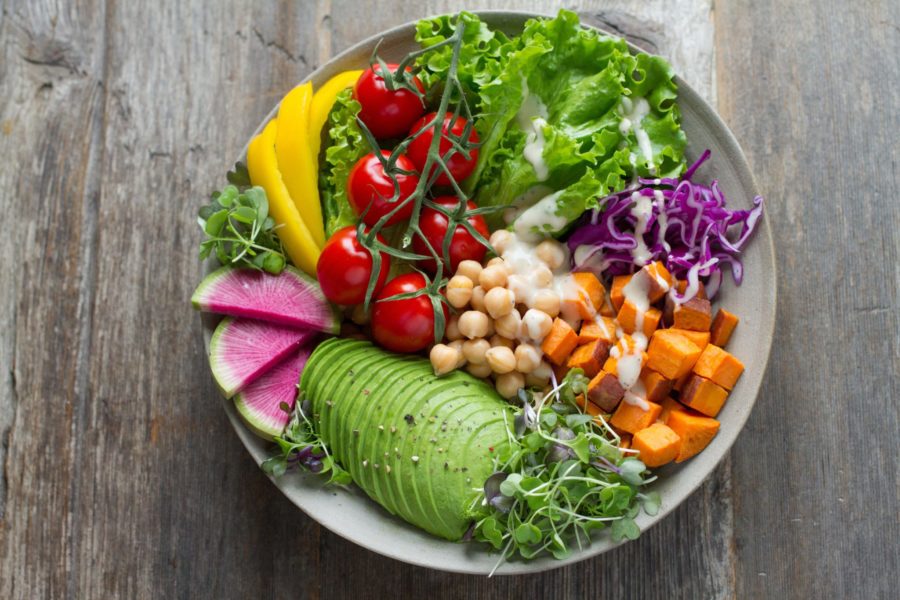Dietitian Blog, MNT Guidelines | May 7 2019
Neutropenia mania: Where we stand with the neutropenic diet

When patients are neutropenic, they can be immunocompromised and therefore, more susceptible to infection. Traditionally, a neutropenic diet is often given to cancer patients (or others) when their immune system is compromised to reduce infection risk. But how effective is the neutropenic diet at reducing infection? Let’s find out.
What is the neutropenic diet?
Spoiler alert: There are no standards for the neutropenic diet set by any governing body. A quick search for “neutropenic diet” will reveal these similarities: no raw fruits/vegetables (all must be cooked), no raw fish or fermented foods, and no unpasteurized dairy products. Generally, foods that may have a high microorganism count are restricted on the neutropenic diet.
The history of the neutropenic diet
Back in the 1960’s, infection-related deaths in cancer patients was a big problem. In an attempt to prevent infections, patients would stay in “isolator units” (imagine a bed inside a bubble of plastic … yikes!). Everything had to be sanitized before it was given to the patient, including food. All food was cooked to temperatures that were sure to kill any microorganisms.
In the 1980’s, this isolator-type treatment was stopped, but the diet component never went away. Little research was done to prove its effectiveness, yet clinicians continued to recommend it because of fear of infection.1
Look to the research
Questions about the effectiveness of a neutropenic diet in reducing infection began in the early-2000’s. Between 2008 and 2018, several high-quality, randomized controlled trials have shown no reduction in infection risk when patients follow a neutropenic diet.2-5
Not only is the neutropenic diet ineffective, it may actually raise the risk of infection.3 Researchers are looking into the possibility that infections in neutropenic patients may be related to changes in gut microbiota and altered gut colonizations. Changes in food and nutrition intake or a lack of dietary variety can lead to unfavorable alterations in gut microbiota. We can expect to learn more about the relationship between infections and the gut microbiome in the future.
Ready to “de-adopt?”
We always want to practice based on evidence-based recommendations. And since you’re a proactive dietitian, start the process to make changes at your facility to eliminate the neutropenic diet restrictions.
Educate and encourage your patients to follow safe food handling practices, rather than a neutropenic diet with numerous food restrictions. Help them eat safely and healthy before, during, and after their treatment. You can make a difference, and your patients will thank you!
Dietitians On Demand is a nationwide staffing and recruiting company for registered dietitians, specializing in short-term, temporary and permanent-hire positions in acute care, long term care and food service positions. We’re dedicated to dietitians and helping them enhance their practice and excel in the workplace. Check out our job openings, request your coverage, or visit our store today!
References
Greger M. Is a Neutropenic Diet Necessary for Cancer Patients? NutritionFacts.org. https://nutritionfacts.org/video/is-a-neutropenic-diet-necessary-for-cancer-patients/. Published June 3, 2015. Accessed February 2, 2019.
Gardner A, Mattiuzzi G, Faderl S, et al. Randomized comparison of cooked and noncooked diets in patients undergoing remission induction therapy for acute myeloid leukemia. J Clin Oncol. 2008;26(35):5684-5688.
Trifilio S, Helenowski I, Giel M, et al. Questioning the Role of a Neutropenic Diet following Hematopoetic Stem Cell Transplantation. Biology of Blood and Marrow Transplantation. 2012;18(9):1385-1390. doi:10.1016/j.bbmt.2012.02.015.
Lassiter M, Schneider S. A Pilot Study Comparing the Neutropenic Diet to a Non-Neutropenic Diet in the Allogeneic Hematopoietic Stem Cell Transplantation Population. Clinical Journal of Oncology Nursing. 2015;19(3):273-278. doi:10.1188/15.cjon.19-03ap.
Moody KM, Baker RA, Santizo RO, et al. A randomized trial of the effectiveness of the neutropenic diet versus food safety guidelines on infection rate in pediatric oncology patients. Current neurology and neuroscience reports. https://www.ncbi.nlm.nih.gov/pubmed/28696047. Published January 2018. Accessed January 31, 2019.
Who we are
Dietitians On Demand is the nationwide leader in providing dietitians with jobs they love. If flexibility, competitive pay, a full benefits package, free CPEUs each month and a team dedicated to dietitians sound good to you, apply to our positions today.




